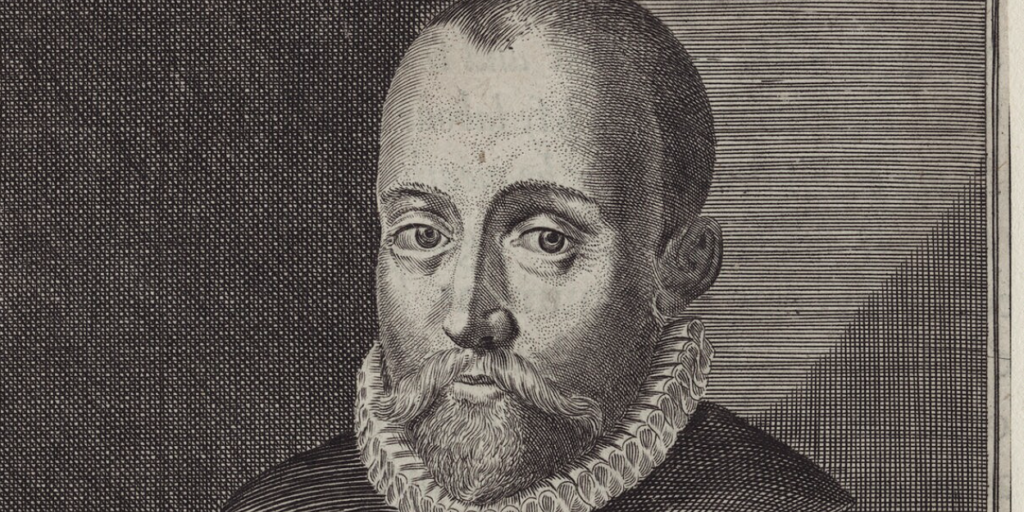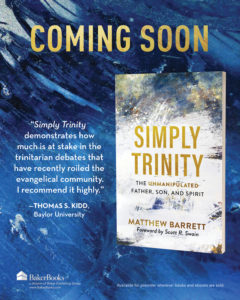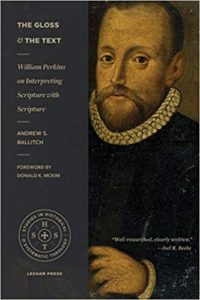
William Perkins and the Priority of Scripture
Wi lliam Perkins’s convictions on the ministry of God’s word are best known through his preaching manual, The Arte of Prophecying, which became a standard textbook on the subject. The volume articulated a thoroughly Protestant understanding of the nature and authority of Scripture and rooted itself in a thoroughly Reformed hermeneutic. The book also featured a fountain of homiletical advice, as Perkins detailed his method of sermon development and delivery. More than any other, the popularity of this book explains Perkins’s enduring significance in the decades and even centuries after his death.
lliam Perkins’s convictions on the ministry of God’s word are best known through his preaching manual, The Arte of Prophecying, which became a standard textbook on the subject. The volume articulated a thoroughly Protestant understanding of the nature and authority of Scripture and rooted itself in a thoroughly Reformed hermeneutic. The book also featured a fountain of homiletical advice, as Perkins detailed his method of sermon development and delivery. More than any other, the popularity of this book explains Perkins’s enduring significance in the decades and even centuries after his death.
Interpreting Scripture with Scripture
Perkins’s business was the ministry of the word, and it extended far beyond his sermons. He carried this commitment to the word into every genre of his writing. This consistency evidences his convictions concerning Scripture itself as well as the nature of his goals as a reformer. It is not an overstatement to say the systematic interpretation of the Bible and the presentation of its results defined Perkins’s life in the university and church pulpit. In fact, it is because of this rigorous commitment—whether in his practical materials, theological treatises, or polemical works—that Perkins started with Scripture and always applied it to the task at hand.
William Perkins interpreted Scripture with Scripture by using three tools: context, collation, and the analogy of faith. In brief, context is a close reading of the text in terms of the argument and literary features; collation a comparison with other passages; and the analogy of faith the boundaries of the Reformed tradition. Perkins expounded Scripture throughout his works according to this method, which he presents in The Arte of Prophecying.
William Perkins interpreted Scripture with Scripture by using three tools: context, collation, and the analogy of faith. Click To Tweet This intense scriptural focus emanated from Perkins’s belief that Scripture is God’s word and therefore the only adequate foundation for the reformation of individuals, the church, and society. As God’s word, Scripture determined his hermeneutic—Scripture interprets itself. Though not reflected in most Perkinsian scholarship, Perkins consistently applied this method of biblical interpretation regardless of the genre in which he worked. He pursued this strategy due to both his own convictions concerning Scripture and his urgent commitment to further reformation during the reign of Elizabeth I.
Scripture and Society
Only the word of God and its faithful exposition—that is, exposition in line with the hermeneutical principles stated in The Arte of Prophecying—could accomplish the monumental tasks before sixteenth-century Puritans. Perkins in particular strove to transform an ignorant and immoral people, exhorting them to live up to the Reformation principles England had officially adopted. So, in his preaching and practical works, what did he do? He expounded Scripture. A Cambridge man, Perkins also played a role in educating the clergy for pastoral ministry.
Perkins’s consistent use of Scripture reflects his and the Reformed tradition’s convictions about biblical authority. Click To Tweet So, in his practical works on ministry, what did he do? He explained Scripture. As part of an international Reformed community, Perkins was compelled to defend the precious doctrines of the Reformed tradition. So, in his theological treatises, what did he do? He exposited Scripture. As one aware of the looming political threat the Church of Rome and its allies posed to England and as one unsettled by the ebb and flow of the English Reformation, Perkins was obliged to defend his conception of the Christian faith. So, in his polemics, what did he do? He explicated Scripture. From first to last, the exposition of Scripture dominated Perkins’s endeavors.
Perkins participated in a national and international effort to establish Protestantism, more precisely the Reformed tradition. His preaching and popular writing are representative of this endeavor on the English scene, along with contemporaries such as Richard Greenham and Richard Rogers. Perkins participated in university life at Cambridge with Laurence Chaderton, William Whitaker, and others, educating men for pastoral ministry and wrestling with doctrinal precision in dialogue with university men throughout Europe.
On the international stage, Perkins contributed Latin theological treatises, numbering him among Reformed divines such as Theodore Beza and Amandus Polanus. Perkins’s consistent use of Scripture reflects his and the Reformed tradition’s convictions about biblical authority. His method of interpretation—at heart a commitment to use Scripture to interpret itself, a commitment central to the Reformed tradition as a whole—reveals a conviction about Scripture’s sufficiency. This study demonstrates that Perkins’s works were a contribution to an already existing and rapidly growing Reformed Protestant exegesis that grounded, defended, nuanced, and articulated the movement’s doctrine and practice.
Further Reformation
O f course, Perkins did not approach biblical interpretation in isolation from his theological heritage. His hermeneutical method shows both continuity and discontinuity with the medieval era. Moreover, Perkins exhibits both dependence and independence in relation to the Reformed tradition in general and his English contemporaries in particular.
f course, Perkins did not approach biblical interpretation in isolation from his theological heritage. His hermeneutical method shows both continuity and discontinuity with the medieval era. Moreover, Perkins exhibits both dependence and independence in relation to the Reformed tradition in general and his English contemporaries in particular.
His pervasive stress on the Bible challenged the perceived scholastic approach to theology in the post-Reformation Reformed tradition. Perkins was a creative man of his times who devoted his multifaceted career as preacher, teacher, theologian, polemicist, and popular author to one thing: the exposition of Scripture for the purpose of further reformation.
** For more information, see Andrew Ballitch’s The Gloss and the Text: William Perkins on Interpreting Scripture with Scripture (Lexham Press, 2020) **

